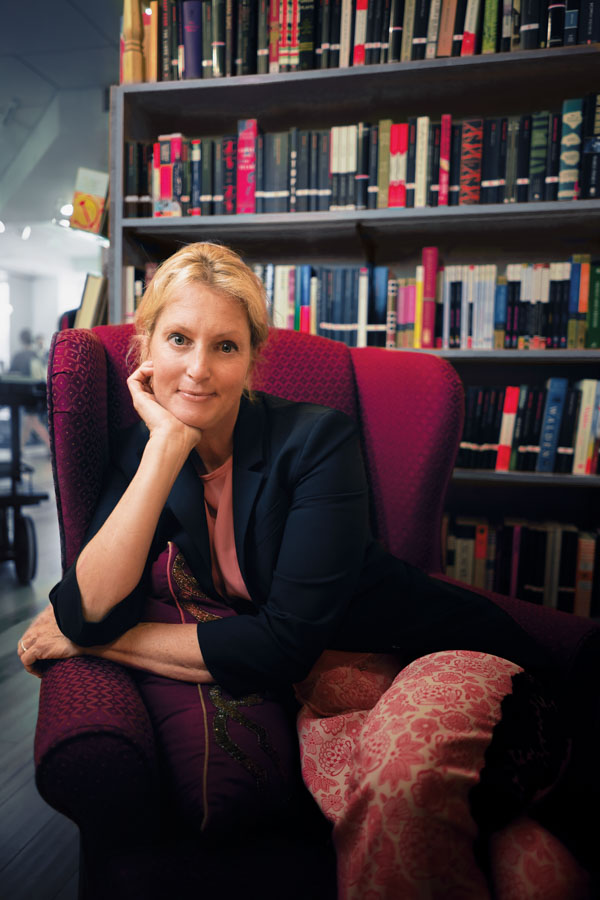From a start on In Living Color to supporting roles in films like Jerry Maguire and Office Space, and from sparring with the Soup Nazi on Seinfeld to scripting her own projects, such as the recent Nightcap TV series, Ali Wentworth has kept her eyes and ears open—and her wit sharp. Already the best-selling author of two comic tomes, Ali in Wonderland: And Other Tall Tales and Happily Ali After: And Other Fairly True Tales, Wentworth hits the trail to promote her latest collection of semi-true short stories and memoirs, Go Ask Ali: Half-Baked Advice (And Free Lemonade), including a stop at downtown’s own Bookstore1 Sarasota. SRQ dropped in for a word from the wise.

ALI WENTWORTH AT A BOOK-SIGNING AT BOOKSTORE1 SARASOTA. PHOTO BY WYATT KOSTYGAN.
What was the drive behind book number three? Ali Wentworth: Basically, I have a lot of friends who come to me for advice, and so I’ve felt the need to monopolize and make money on that. It’s advice based on all the mistakes I’ve made, which should be a 10-volume set, but right now this is the first one. Because we need to communicate that stuff. I go to my friends for everything before Google or Deepak or my shrink. So this is basically my cautionary tales.
When you started, did you know you had a voice that would resonate on the page? I didn’t know, because my advice has always been from a comedic standpoint. I even sort of parent that way. So the other books leading up to this book have been—they’re my own stories about life and how I observed them, and I was ready to give the advice now. A lot of the stories have some takeaway to them, but my advice is pretty standard. “Don’t hire a hot babysitter” and things like that.
What do you get out of this writing that you don’t get from screenwriting or acting? For me, the perfect combination is book-writing and performing. I like them both, and if I do too much of one I miss the other. But in screenwriting you’re always taking on a persona, you’re thinking about characters. The reason I liked writing in the first person was because they’re my stories and I’m telling them in my voice—I get to say whatever I want.
This last year or so has seen a lot more emphasis on listening to and respecting women’s voices. Did this come into play with your latest? In a way it did. In the foreword I touch a bit upon women and how we all need to communicate with each other and back each other. And I talked a little bit about Harvey Weinstein, but I had to stop in my intro and say, “This is not a book about sexual predators—don’t get excited.” But it is really about people communicating, and, listen, if a lot of those stories were told earlier, there wouldn’t be as many victims as there are. And I’m happy that our society embraced the way they did. Two of my best friends started Times Up, and that’s become a real movement, which is not about necessarily sexual harassment, but about support and women feeling safe in the workforce, even if you’re a farmer.
What do you hope readers will take from the book? I hope they will laugh. A lot of the advice people have experienced. I tell a story about how I accidentally emailed something bad about somebody to them. So a lot of the stories, people go, “Oh, god” or “I’ve done that,” but also I do try to end each story with—not a moral, because I’m not a moral person—but just a little takeaway. You know, “always check your email before” or whatever it is. With the hot babysitter, I basically say, “I can’t believe I have to say this out loud and tell people,” but then I take you through the whole scenario of what will happen if you hire a hot babysitter. Basically the babysitter ends up with the husband.
What is next for you? Nightcap season 3? I wish. No, not another Nightcap. I’m working on two other shows—I can’t really say anything about them because they’re not sold to the network yet—but I’m working on TV shows. And I’d like to write another book








